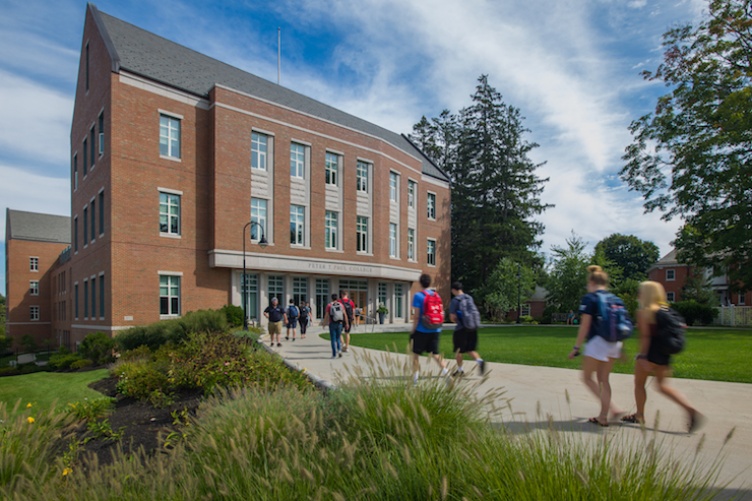
For the fourth consecutive year, the Peter T. Paul College of Business and Economics has been ranked as one of the nation’s top 100 business schools.
Poets&Quants for Undergrads released its list of 2020 Best Undergraduate Schools and Paul College ranked No. 35 for alumni satisfaction, No. 56 for career outcomes and No. 67 overall.
Paul College was first ranked among the nation’s top 100 business schools in 2016, when it was ranked No. 81 by Bloomberg Businessweek, the last year the publication conducted the ranking.
"Our program is distinguished by a wide range of innovative, high-impact learning experiences as well as outstanding student support that ensures that students get the most out of their time here and are well prepared to forge meaningful lives and successful careers."
Poets&Quants is an online publication for undergraduate business education news. Its ranking is now considered the most comprehensive assessment of undergraduate business schools. Its methodology, developed in collaboration with business school deans and administrators, puts equal emphasis on admissions standards and career outcomes, as well as the college and business school experience based entirely on responses to an extensive alumni survey.
“Being named one of the nation’s best business schools is always a proud moment for me and for our faculty, staff, students and alumni,” said Dean Deborah Merrill Sands. “Over the past five years we have focused our efforts on providing the very best education for our students. Our program is distinguished by a wide range of innovative, high-impact learning experiences as well as outstanding student support that ensures that students get the most out of their time here and are well prepared to forge meaningful lives and successful careers. We are especially pleased that these efforts are recognized in the high satisfaction of our recently graduated alumni.”
What distinguishes Paul College from its peers, according to Neil Niman, associate dean of academic programs, is that it takes a more expansive approach to the curriculum. This, he said, has contributed toward students being more engaged in the college and university life, and has set them apart from other business school graduates when they enter the workforce.
“We think in terms of the entire student experience, one that includes those social and professional experiences that serve as a launch pad for what happens after graduation,” Niman said. “Rather than thinking of the social, academic and professional aspects of college life as three distinct and separate experiences, our programs are designed to create points of intersection, capable of creating a coherent and comprehensive experience.”
One of Paul College’s newest and most innovative initiatives is its Business in Practice program that invites working professionals to design and deliver a broad spectrum of two-credit courses that bridge the gap between the core curriculum and what is required for success in today’s continuously evolving business environment. This program builds on the success of the college’s First-Year Research and Innovation Experience (FIRE), a year-long program that uses game design to motivate and engage students and help them build a community of peers, as well as learn research skills, how to develop business plans and present their idea to their faculty and the public.
-
Written By:
Sharon Keeler | Peter T. Paul College of Business and Economics | sharon.keeler@unh.edu | 6038623775




















































